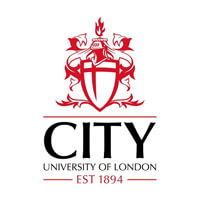fees waived
Biomedical and Healthcare Engineering, MEng (Hons)
City, University of London, United Kingdom
Subject ranking
UK / Guardian 2025 2nd
UK / Times 2025 5th
UK / ARWU 2024 15th
Costs
food & rentS$25.1K / year
Entry requirements
Scholarships
Limited quantity
Information
Code
Intakes
Programmes
Information
Duration
2029
This four-year biomedical and healthcare engineering degree prepares graduates for careers in hospitals, research facilities, educational institutions, and regulatory agencies. It applies principles of science, engineering, and medicine to manage complex medical technologies for diagnosis, monitoring, and treatment of illnesses and injuries. The interdisciplinary curriculum starts with foundational engineering and health sciences, progressing to advanced topics such as biomedical instrumentation, biomaterials, biomechanics, and biosignal analysis.Learning combines theoretical, experimental, and computational methods, fostering critical thinking, teamwork, and communication through projects and presentations. Students benefit from industry collaborations, NHS placements, and access to world-leading facilities. The program includes modules across years, covering mathematics, electronics, anatomy, signal processing, and professional practice, with assessments via coursework, exams, and projects. Graduates pursue roles in medical technology, research, healthcare, and related sectors, with pathways to professional accreditation.
You will develop a strong technical background in the key subjects of biomedical and healthcare engineering, with management studies and engineering design also integral to the course. The Engineer in Society is an innovative theme across each year. We introduce you to the economic, social and technical context where engineers work, and develop your social responsibility, knowledge, and topical engineering skills. Year 1 Build a firm foundation in mathematics, engineering, physics, electronics and computing – including anatomy, physiology and pathology. -The Engineering in Society - Social responsibility (15 credits) -Anatomy and Physiology (15 credits) -Introductory Mathematics and Programming (15 credits) -Electronics - including circuits, digital and analog electronics (15 credits) -Introduction to programming (15 credits) -Engineering Science (15 credits) -Mathematics 1 (15 credits) -Introduction to Thermodynamics and Fluid Mechanics (15 credits) Year 2 Learn to apply engineering analysis to simple but representative components of engineering systems. You will study biomedical design and advance your knowledge of biomedical instrumentation, biomaterials, biomechanics and rehabilitation engineering. -The Engineer in Society: Sustainability and Circular Economy (15 credits) -Mathematics 2 (15 credits) -Engineering Design 2 (15 credits) -Biomedical Instrumentation (15 credits) -Engineering Based Data Analysis (15 credits) -Biomaterials (15 credits) -Biomechanics & Rehabilitation Technology (15 credits) -Electrophysiology & Cardiorespiratory Measurements (15 credits) Year 3 Deepen your specialism with topics including biosignals, biosensors, medical physics and imaging, physiological fluid mechanics and biological system modelling. -Individual project (30 credits) -Biomedical and Healthcare Engineering in the society (15 credits) -Biomedical Signal Processing (15 credits) -Biomedical Sensors (15 credits) -Biological Systems Modelling (15 credits) -Medical Physics and Imaging (15 credits) -Physiological Fluid Mechanics (15 credits) Year 4 Transition to professional practice with a major design project supported by our research expertise and industry/NHS partners. We offer complementary specialist modules. -Design project group (30 credits) -Systems Engineering practice in society (15 credits) -Healthcare App Design (15 credits) -Wearable and Implantable Devices (15 credits) -Neural Engineering (15 credits) -Medical Device Entrepreneurship (15 credits) -Ethics and Biodata Management and Security (15 credits) -Robotics Imaging and Vision (15 credits) -Machine Learning (15 credits)

